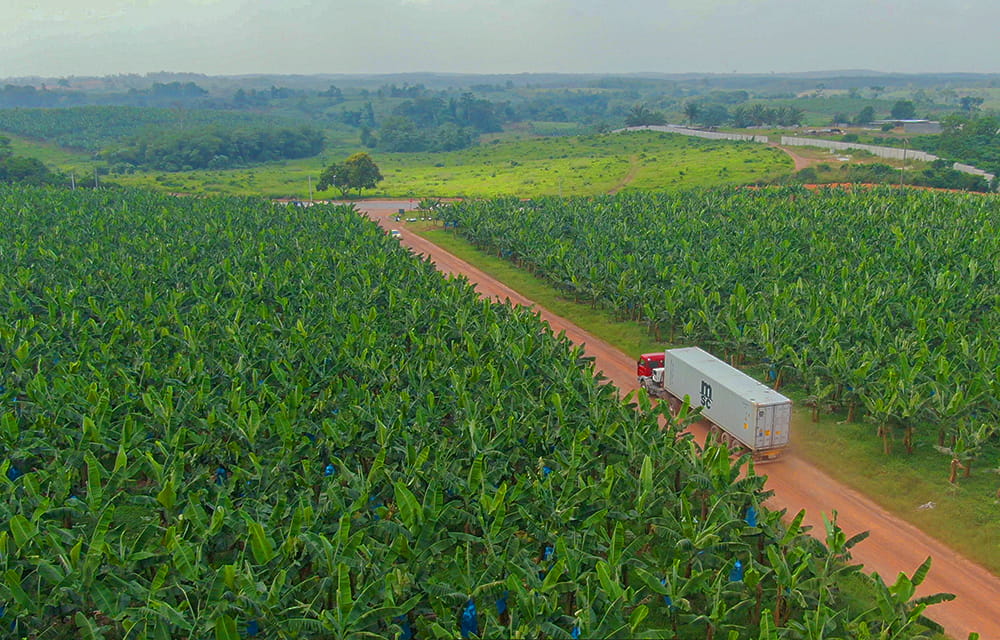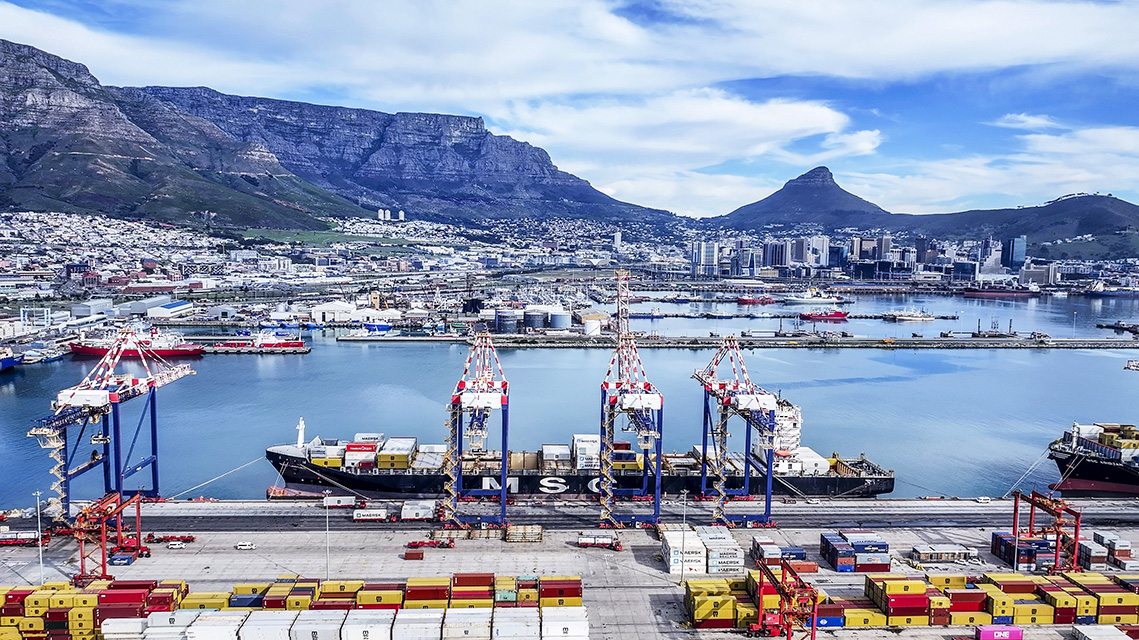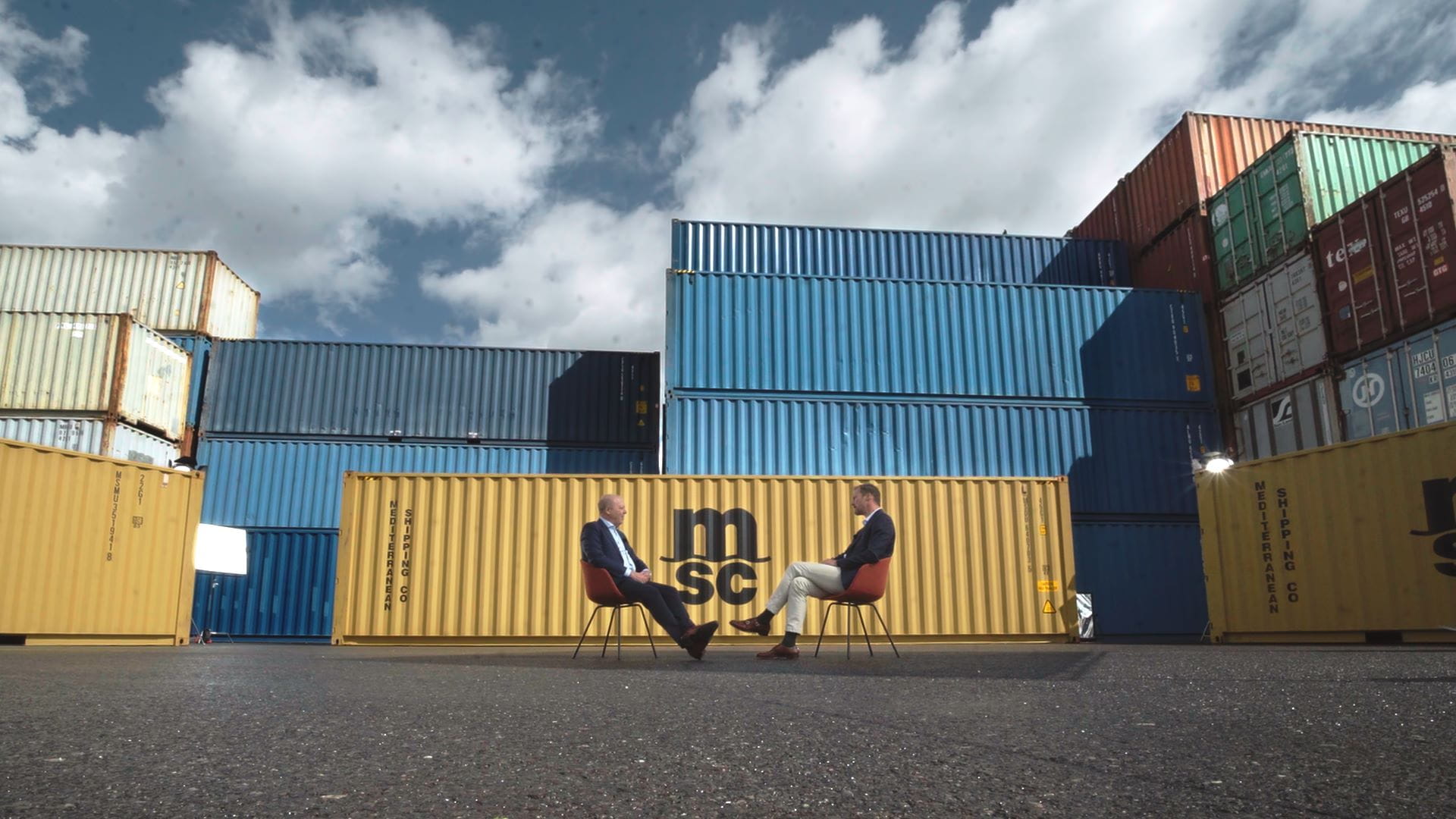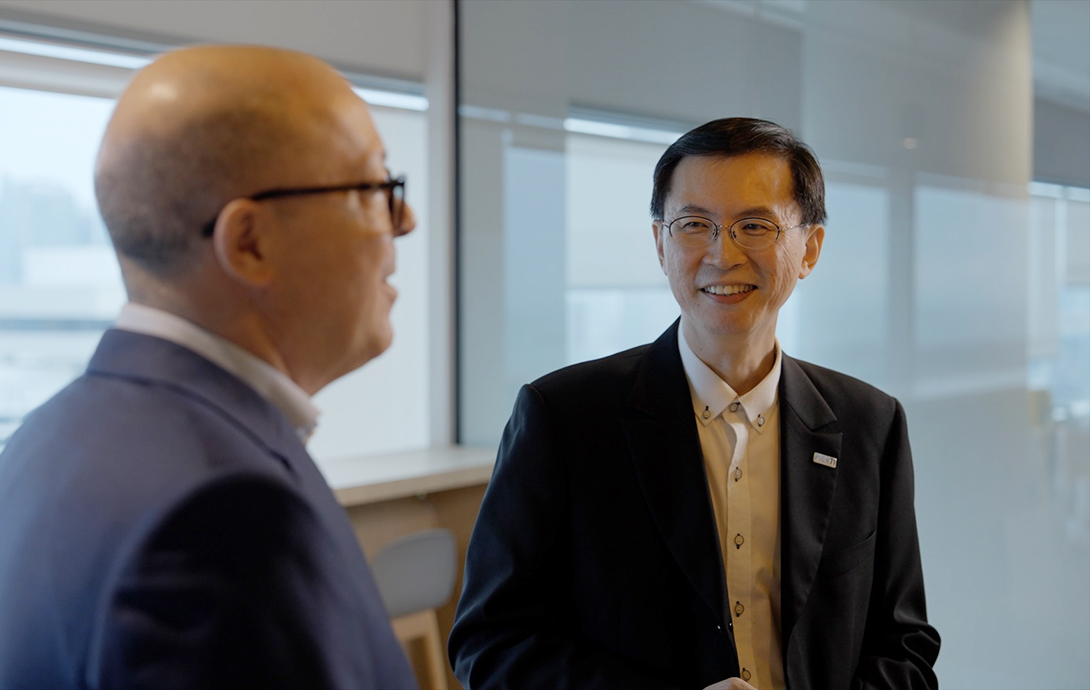
/ko/newsroom/stories/digital/2023/msc-digital-talks-ep-7-embracing-data-and-digital
MSC Digital Talks Ep. 7: Embracing Data & Digital: A Freight Forwarder’s Story
12/07/2023
What are the benefits of embracing digital solutions such as the electronic Bill of Lading (eBL)? Christian Xu, Group Pricing Center Director at De Well, explains in the latest episode of #MSCDigitalTalks.
For this episode of MSC Digital Talks, our CDIO André Simha travelled to Shanghai and met Christian Xu, Group Pricing Center Director at global logistics solution provider De Well.
Since first piloting the electronic Bill of Lading (eBL) in 2019, Christian has seen at first hands the benefits of going paperless – from increased security to a reduced carbon footprint.
"
We are so happy we started to use the eBL. Now we see all the benefits. I think the biggest benefit is that eBL protects both parties: the shipper and the consignee. As a middleman, we must protect both.
"
The importance of actionable, predictable data
In the video, André and Christian also speak about the crucial role of accurate, up-to-date data in supply chain and e-commerce. They discuss how digital and AI tools can complement work done by humans, leading to more visibility and predictability.
“Finding ways of improving the data flows, improving the quality of the information is key to [our customers’] development. The beauty of this eBL solution is the data that flows with it.” says André Simha, CDIO of MSC.
Join the conversation
Our #MSCDigitalTalks video series explores shipping’s digital transformation through conversations with industry leaders and experts.
Follow André Simha and #MSCDigitalTalks on LinkedIn to watch the latest episodes and join the conversation.
About MSC's digital solutions
Interested in learning more about MSC’s eBL solution? Read our simple guide or register now to get started.
Read Episode 7 Transcript
André Simha: Christian, beautiful, great to meet you!
Christian Xu: Nice to meet you! Welcome to Shanghai! So, I think the biggest and the first benefit is that the eBL* protects both parties: the shipper and the consignee.
Talking about the e-commerce business, it predicts maybe how your e-commerce platform sells; which cargo will be the hot cargo? We need the new technology to help us, like AI, a very popular topic now.
We need to open our arms, to give a hug to the data. Yes. Welcome to data. This is the future.
Andre Simha: Christian, such a pleasure to meet you here in De Well’s new offices. And thank you so much for agreeing to participate in these Digital Talks, which today is going to focus on the eBill of Lading.
Christian Xu: Thank you for inviting me to join this discussion. I'm so happy to bring the voice of De Well, one of the top 10 NVOCCs in the TP eastbound trade. So, welcome to Shanghai!
Andre Simha: You're not only operating in China, but you have owned offices around the world. And we're both family-run companies!
Christian Xu: Yes, we both. We try to make global trade easier for everybody. So, our aim is to become the first China-based, privately owned NVOCC to go global.
Andre Simha: Global and digital.
Christian Xu: Yes!
Andre Simha: So, let's talk digital.
Christian Xu: Okay, I'm ready.
EBL: ENABLING PAPERLESS FREIGHT FORWARDING (01:40)
Andre Simha: You started to pilot the eBL in 2019, then you started to use it in 2020. And today you're one of our biggest users. Now, can you tell me a little bit more about how you did that and how that affects your work?
Christian Xu: I think it's a great innovation in this industry. Actually, from the very beginning, we hesitated to use eBL, but finally we accepted MSC’s suggestion.
Andre Simha: So, we pushed you.
Christian Xu: Yes, you gave a hard push, but we are so happy we made it. Now we see all the benefits. So, I think the biggest and the first benefit is that eBL protects both parties: the shipper and the consignee. So eBL is still the document of title. It's not like a telex release or seaway bill. This is the most important.
Andre Simha: Security.
Christian Xu: Yes, as a middleman we must protect both. And the second benefit, I think, is it can make the business more stable, and continuity. You know, we used to use physical-origin Master Bill, using the pouch from China to USA or to Canada. But the problem is every year, the pouch is missing. So, what should I do? It's a disaster to us. One pouch can contain 20-30 Master Bills, original ones. How do we release the cargo? So, with eMaster Bills, this is solved. And even during the pandemic period...
Andre Simha: There were no flights.
Christian Xu: Yes. No flights from China. So, it saved us, saved our life during this time. A very hard time. And I think the third one is for the future. We save trees, we save paper, we do low carbon. It's good for the next hundreds of years.
Andre Simha: I completely agree. As we move and digitalize more on the documentation processes, it's also about becoming more sustainable and more efficient.
THE IMPORTANCE OF DATA INTERGRATION IN E-COMMERCE SUPPLY CHAINS (03:48)
Andre: With the surge of global e-commerce and particularly from China, I know that De Well is very much involved in e-commerce all the way to the consumer. What are the tools that you were able to implement and how data serves your purpose; maybe just give a bit of description of that?
Christian Xu: Talking about the e-commerce business, I think the most important is we cannot mess up the cargo. For example, if you want a cup, I give you a spoon. Maybe you need both.
Andre Simha: I need both. Yeah.
Christian Xu: Yeah. But we must follow the customer, I mean, the final consumer’s order, and we do the final dispatch. This is the most important thing. So, when we receive it, we need to import the right data, the most updated data, accurate data into the system.
Andre Simha: And you're collecting data from all different sources to plug into that.
Christian Xu: So, how to integrate the data? How to ensure the data? This is the most important in e-commerce business.
Andre Simha: That's also where we carriers have a role to play in that supply chain, even if we don't go all the way to the consumer. But finding ways of improving the data flows, improving the quality of the information is key to your development as well. So, the beauty of this eBL solution is the data that flows with it.
ARTIFICIAL INTELLIGENCE (AI) IN CONTAINER SHIPPING (05:15)
André Simha: How do you see the future of digital in this industry and how that affects your operations at De Well?
Christian Xu: Now, we already achieved the first or second step: we have all the data which we can do something on, but we need the new technology to help us, like AI, a very popular topic now, so ChatGPT. So yeah, we need these tools to help us further analyze our data. And I think the final step will be how the data can tell you the future.
Andre Simha: Actionable and predictable.
Christian Xu: It's not only to predict the cargo arrival, which carriers do a good job of now. It's to predict the last mile. It predicts maybe how your e-commerce platform sells; which cargo will be the hot cargo? And the second point I do want to say is, you know, some people, they do worry about the data, they worry about the technology. We need to open our arms, to give a hug to the data. The tech won't lay off you, but they will help you. You need to grow with the new tech knowledge. At least I think the shipping business is human to human, like us.
Andre Simha: Absolutely.
Christian Xu: Yes. Welcome to data. This is the future.
Andre Simha: There's a bit of a mindset.
Christian Xu: Yes, yes.
Andre Simha: Christian. Thank you so much for taking the time. Thank you for this great collaboration we have together. Xie xie, and talk soon.
Christian Xu: Thank you. Merci beaucoup
*eBill of Lading: Electronic Bil of Lading




